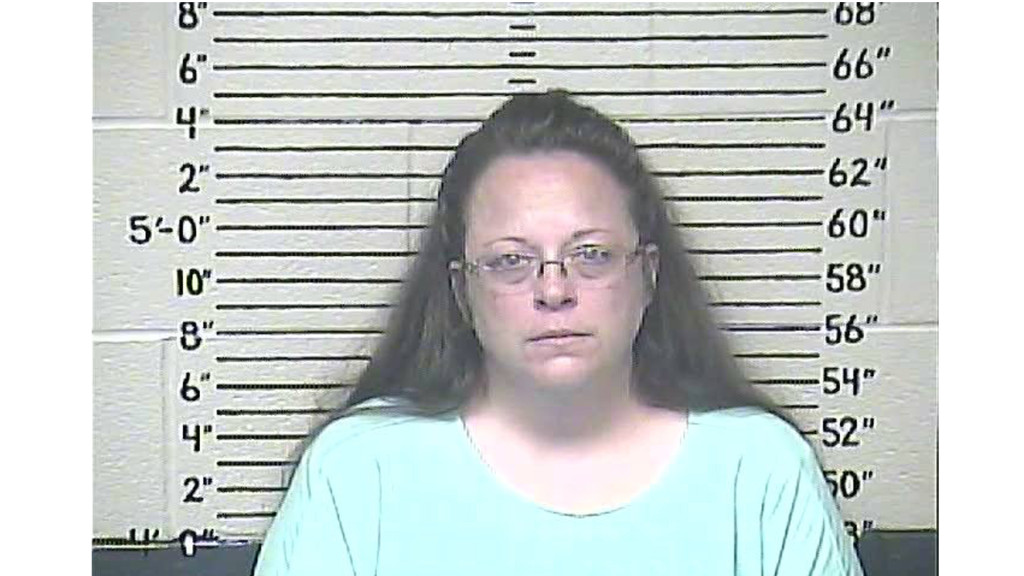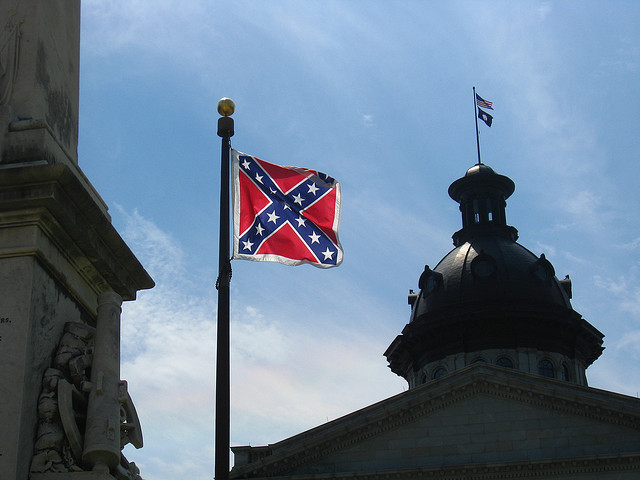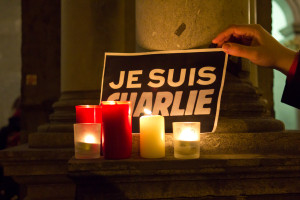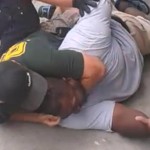In the days since Kentucky’s Rowan County Clerk Kim Davis was jailed for denying marriage licenses to same-sex couples, liberals have condemned her refusal to “follow the law†and cheered on her imprisonment. But this response is ultimately counterproductive. By embracing the law in this case, progressives are reinforcing the very law-and-order mentality that has been used for centuries to discredit left-wing social movements as “criminal†and pave the way for their destruction.
This is hardly a defense of the now-released Davis, who has cast her lot with segregationists and other villains of U.S. history who violated people’s rights based on race, class, and gender. But the law cuts both ways. The same state that is now punishing Davis for her refusal to enforce marriage equality uses the same legalist arguments to persecute military deserters, government whistleblowers, undocumented immigrants, and black liberation activists – all of whom, when they break the law, have traditionally appealed to a higher moral authority.
And the state jails people in these categories far more frequently than it does religious fundamentalists like Kim Davis. When the state cracks down on political dissidents, it is left-wing activists fighting for the expansion of human rights – not right-wing reactionaries bent on limiting them – who bear the brunt of the repression.
This was true of Vietnam-era draft resisters and civil rights activists, who, after all, were breaking the law when they burned draft cards and forcibly integrated lunch counters. And it remains just as true today for environmental activists swept up in Green Scare dragnets and animal rights activists prosecuted under “ag-gag†laws that criminalize the filming of animal conditions in slaughterhouses.
Liberals have cheered the ruling of George W. Bush-appointed U.S. District Judge David L. Bunning, who said, “The idea of natural law superseding this court’s authority would be a dangerous precedent indeed.†But the logical conclusion of this statement is one Inspector Javert would heartily approve: the law is inviolable; we cannot choose for ourselves which laws are just or unjust; and thus they must all be obeyed, unswervingly. Justice would be left to the whim of the courts.
Fortunately, Americans have for centuries adopted a more hands-on attitude when it comes to achieving social progress. Without their more practical view of the law, there would have been no abolitionist movement, no labor movement, no women’s suffrage movement. Indeed, there would have been no LGBT liberation movement, which itself was founded on the debris of the Stonewall Riots.
Liberals, in their haste to condemn Davis, forget that Thoreau, Gandhi, King and Mandela all preached illegal action by people of conscience. And the nature of conscientious objection is that one must be free to decide for oneself what is right and wrong – even, and especially, when most people disagree. Davis’ is an unworthy cause. But the right to follow one’s conscience should remain sacrosanct.
Rather than relishing this particular instance in which state power and social justice seem to be momentarily aligned, progressives should redouble their efforts to dismantle the police state. Instead of blindly calling on state officials to “follow the law†and “do their jobs,†progressives should work to empower their own Kim Davises – people who, like hacker Jeremy Hammond and whistleblower Chelsea Manning, put their lives and livelihoods on the line in the fight for social justice.




